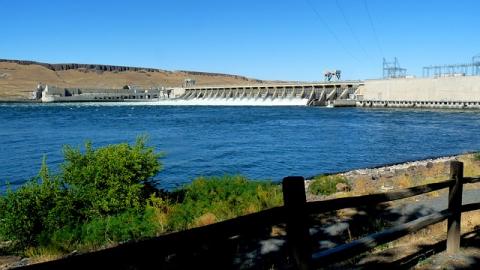
Region: East Asia and Pacific (EAP)
Country: Kiribati
Topic: Legal Framework
Keywords: Knowledge Lab ***, Legal Framework *
Document Link(s):
Document Summary:
Economic Management and Public Sector Reform was initiated in mid 2009 with a primary focus on public financial management (PFM) and the Budget, with state-owned enterprise (SOE) reform and capacity development as related activities. The SOE sector was included since losses and bailouts of SOEs were having a significant impact on the growing Budget deficit. It became readily apparent that the SOE sector issues needed additional attention and this was supported by AusAID, who subsequently provided co-financing through the ADB allowing for an expansion of the SOE reform aspect of the TA.
Document Details:
This is a summary of the knowledge gained as a result of undertaking this TA:
-
Successful reform needs genuine support from the client Government and its senior officials as well as donors. In regards to this TA, there has been willingness by the Government of Kiribati to implement reforms, especially for the SOE sector. Without this there is a high probability that a TA will produce reports with valid recommendations that are never implemented.
-
The issues that are identified as problematic when the terms of reference are drafted will usually evolve or change during the lifecycle of the TA. Indeed they will likely change in terms of scope and size while other issues will arise that may supersede the original problems and need priority attention over the original problems. In such a situation, it is very beneficial for the TA funder to support modification of either the terms of reference or the approach taken by the TA Team in the field. In relation to this TA, the ADB has been very supportive of the adaption of the TOR to meet the urgent needs of the GOK.
-
Where major new issues are identified that are well outside the scope and funding of the TA, supportive donors should quickly initiate TA support for new TAs that build upon the initial one. In regards to this TA, this happened in relation to the budget needs of the GOK where significant problems were identified by the TA relating to the general ledger and government accounting system.
-
Where multiple TAs are operating in the field, a cooperative rather than a competitive approach is essential and can lead to increased benefits for the client government. For this TA, there have been other TAs particularly relating to SOEs, namely for PUB (water and sanitation as well as PRIF assistance with strategy), Otintaai Hotel (IFC PPP) and TSKL (World Bank). The TA Team proactively sought to coordinate work and share information. This was particularly effective with the IFC TA where there was ready agreement on boundaries. On the budget aspect, this was less successful because donors sometimes fielded consultants (usually for short term assignments) without the prior knowledge of the TA Team.
-
Time and effort must go into building positive relationships between the consultants and senior officials. This will lead to the establishment of genuine trust by counterparts that the advice being provided is technically correct and feasible, taking into account local issues such as culture. This approach was taken by the TA Team and was critical in the success achieved by the TA.
-
Reform is typically incomplete at the end of a TA and often needs ongoing support to ensure gains and momentum are not lost. Certainly in relation to this TA the success of the process was recognised by the GOK who, through the SRSC, encouraged the reform process to move forward as quickly as possible and urged the key donors to provide any funding assistance that they could.
Updated: June 21, 2022